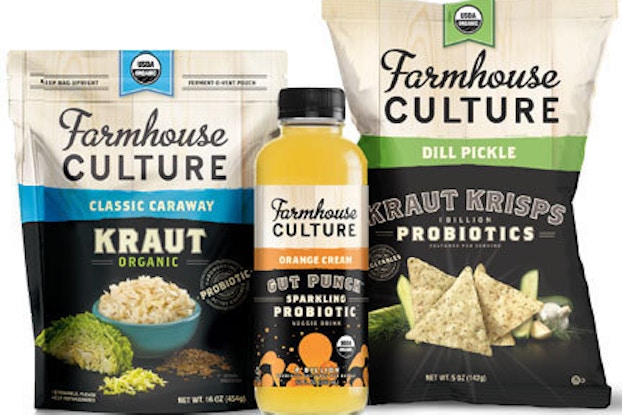
Big food companies and their legacy brands are losing market share to small food companies and their challenger brands.
Challenger brands are disrupting legacy brands by selling online directly to consumers, employing creative digital marketing strategies and using lean operating structures that allow the brands to be quick and nimble in identifying and adapting to changing consumer trends.
Now, big food companies, which were initially slow to respond to the challenge, are no longer standing still. Instead, companies like the Kellogg Company, General Mills, Tyson Foods and others have created corporate venture capital (CVC) arms to invest directly in the small companies and challenger brands that are disrupting their legacy brands like Kellogg's Corn Flakes and General Mills’ Yoplait yogurt.
Corporate venture capital is the practice of directly investing corporate funds into startup or emerging companies with high-growth potential or that offer other strategic advantages to a corporation, such as innovation opportunities.
The CVC push by big food companies comes as the upstarts chip away their market share.
Halo Top ice cream, founded as a challenger brand in 2012, became the leading U.S. brand of super-premium ice cream in less than a decade, conquering longtime category-leading legacy brands Ben & Jerry’s, owned by Unilever, and Nestle-owned Häagen-Dazs.
Organic chickpea puffs brand Hippeas, which launched in 2014, is challenging the big brands in the snack food aisle by appealing to changing consumer tastes for better-for-you snacks.
Plant-based meat alternative startup Beyond Meat, which went public May 1, 2019, and has seen its stock value surge over 200% since, is disrupting the traditional ground beef category with its Beyond Burger product, which launched in 2016 and is available in nearly every supermarket in the United States.
To put this disruption in perspective, the top 25 food companies collectively lost more than $15 billion in market share to smaller food companies and their challenger brands since 2013, according to a report from strategy and management consulting firm A.T. Kearny.
Corporate venture capital is a very positive development for the entire food industry ecosystem.
Liveo Bisterzo, founder and CEO, Green Park Holdings
No longer standing still: Kellogg’s invests in Kuli Kuli Foods, General Mills bets on GoodBelly
To counter that encroachment, Kellogg’s CVC arm Eighteen94 Capital has invested in Kuli Kuli Foods, which makes packaged food products using the plant moringa, Bright Greens, a smoothie business, and other small food companies.
Lisa Curtis, founder and CEO of Kuli Kuli Foods, said she’s found corporate venture capital to be an important asset for her and the company she founded in 2011. “We’ve benefited by not only getting a capital investment from [the Kellogg Company], but also from Kellogg’s industry knowledge, retailer relationships and its supply-chain expertise,” Curtis told CO—. “It’s been a big win all around for us.”
General Mills’ 301 Inc corporate venture arm has made investments in a number of challenger brands, including cottage cheese startup Good Culture, probiotic food and drink company GoodBelly, and Farmhouse Culture, maker of fermented packaged food and drink products.
Meat giant Tyson Foods is partnering directly with the small companies set on disrupting the entire meat industry. Its Tyson Ventures unit has invested in companies such as lab-based meat startups Memphis Meats and Future Meat Technologies.
Corporate venture capital isn’t new. “Conglomerates, technology and energy companies have had venture funds for many years,” said Rob Trice, a veteran of high-tech corporate venture capital and co-founder of Silicon Valley venture capital firm Better Food Ventures, which invests in disruptive food startups that have a technology or digital focus.
But corporate venturing is new to the food industry, with the first big corporate venture capital arms popping up in 2016.
“Corporate venture capital is a very positive development for the entire food industry ecosystem,” Liveo Bisterzo, who, as founder and CEO of Los Angeles-based Green Park Holdings, works with both traditional venture capital firms and corporate venture arms regularly. Green Park is the holding company for the Hippeas snack food brand, an incubator of challenger brands, and also makes investments in food startups, including in partnership with corporations and financial venture capital firms.

“Legacy food companies have recognized innovation is hard to do in-house, so [they] are turning to corporate venture capital as a way to spur innovation and become involved with the many startups reinventing the food space,” he said. “Corporate venturing offers a great advantage for entrepreneurs to get to know the major food companies and put them in the investment mix, whether or not the corporations end up investing in their challenger brands.”
The challenger brand challenge to big food company legacy brands is real, sources said.
Jordan Gaspar, managing partner at AccelFoods, predicted at the Milken Institute Global Conference in April 2019 that five years from now, the products we grew up eating will not be on grocery store shelves because of changing consumer tastes.
Food giant Danone, maker of Dannon yogurt, has invested $15 million with AccelFoods and has charged the company with investing in small food companies with disruptive challenger brands just in case Gaspar is right.
The jury is still out on whether or not corporate venture capital will be the secret sauce for big food companies, according to industry veteran Trice, who is generally positive on the practice.
“The important thing for innovative small food companies contemplating working with a corporate venture group is to do due diligence,” Trice said. “What is the stated objective of the corporation? How do they work with other parts of the corporation? What value can they bring to the startup or small food company? These and others are important factors.”
CO— aims to bring you inspiration from leading respected experts. However, before making any business decision, you should consult a professional who can advise you based on your individual situation.
CO—is committed to helping you start, run and grow your small business. Learn more about the benefits of small business membership in the U.S. Chamber of Commerce, here.








